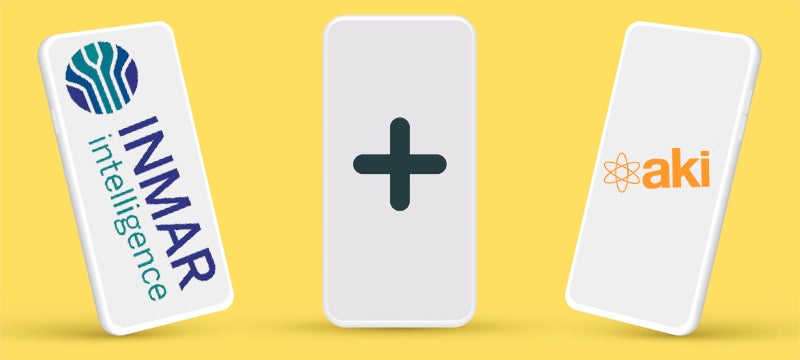Inmar Intelligence is adding mobile to its cart.
On Thursday, the retailer-focused tech and data platform reached an agreement to acquire mobile ad platform Aki Technologies to take advantage of the high-growth retail media category.
Aaron Kechley, Inmar’s GM of media and SVP of strategy, declined to share a deal price.
But he did elaborate on the rationale behind the acquisition, which is to enhance Inmar’s retail media solutions with Aki’s personalization tech. Aki, in turn, can take advantage of Inmar’s access to first-party data.
Inmar has a retail cloud product that combines commerce and retail media with incentives, such as coupons, rebates and no-touch digital promotions. That solution houses around 115 million shopper records fueled by loyalty data that’s fed directly into Inmar’s homegrown CDP from the point-of-sale systems of its retailer clients.
In October 2019, Inmar acquired second-party data exchange and DSP ownerIQ, part of the roughly $1 billion it’s spent since 2017 on a mixture of M&A and R&D to build out its retail cloud.
Partially as a result of this M&A spree, Inmar’s current headcount stands at just over 5,000. All of Aki’s roughly 100 employees will join the company.
Aki fits neatly into Inmar’s vision of providing a suite of technology products for retailers attempting to undergo digital transformation – the need for which has been accelerated greatly by the pandemic – while simultaneously trying to remain competitive in the face of massive change, said Aki CEO Scott Swanson.
(Fun fact, both Inmar and Aki power different elements of Family Dollar’s recently launched retail media network.)
CPG brands in particular need to expand beyond traditional shopper marketing and follow consumer behavior as it shifts online.
Ecommerce penetration in the grocery sector was quite low prior to the pandemic, Kechley said. But online grocery sales grew 54% last year to hit nearly $96 billion, making up 12% of all ecommerce sales in the US, according to eMarketer.
Aki’s technology uses a mix of data signals, such as intent, time of day, content consumption and location, to find the optimal moment for a brand to target consumers with personalized advertising.
“We’ve always done well with CPG because the idea of moment marketing appeals to them,” Swanson said. “They have an interesting problem to solve, because some CPG products are staples and some are impulse buys, and they need to know when the time is right to message their consumers.”
The closer relationship with Inmar – and access to more first-party data – will help Aki devise technology solutions to help solve this sort of problem, Swanson said.
One example Inmar has in mind is to couple Inmar’s incentive and loyalty offering with Aki’s dynamic video creative product to serve up personalized coupons on mobile.
Another is going to market with a mobile version of paper circulars. Printed mailbox stuffers still capture a surprising amount of retailer spend – somewhere between $5 billion and $10 billion a year, based on Aki and Inmar’s estimates.
“There’s a compelling opportunity for CPG retailers and shoppers to create a rich mobile experience as opposed to the digital versions of analog circulars you see today, usually in the form of a PDF,” Kechley said. “Forget trying to flip through something like that on a mobile phone.”
Eventually, the plan is to connect Inmar and Aki’s tech stacks through API integrations. Aki’s meta DSP, called Katana, will also start using Inmar’s DSP to do media buying, although Swanson noted that Aki’s existing DSP partnerships will be unaffected by the acquisition.












